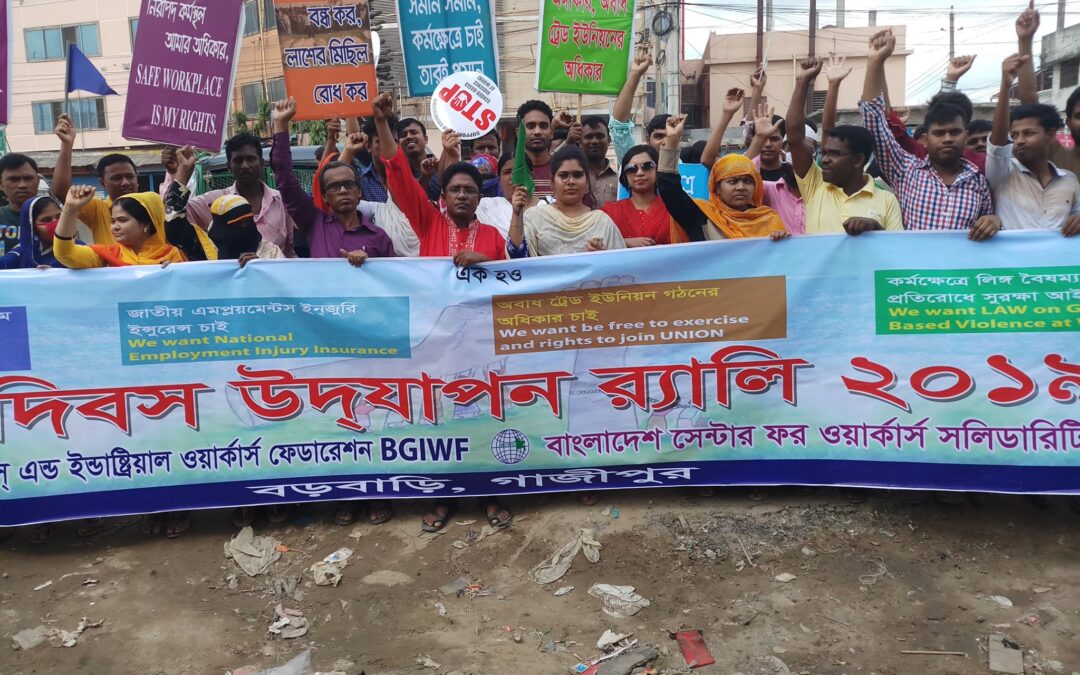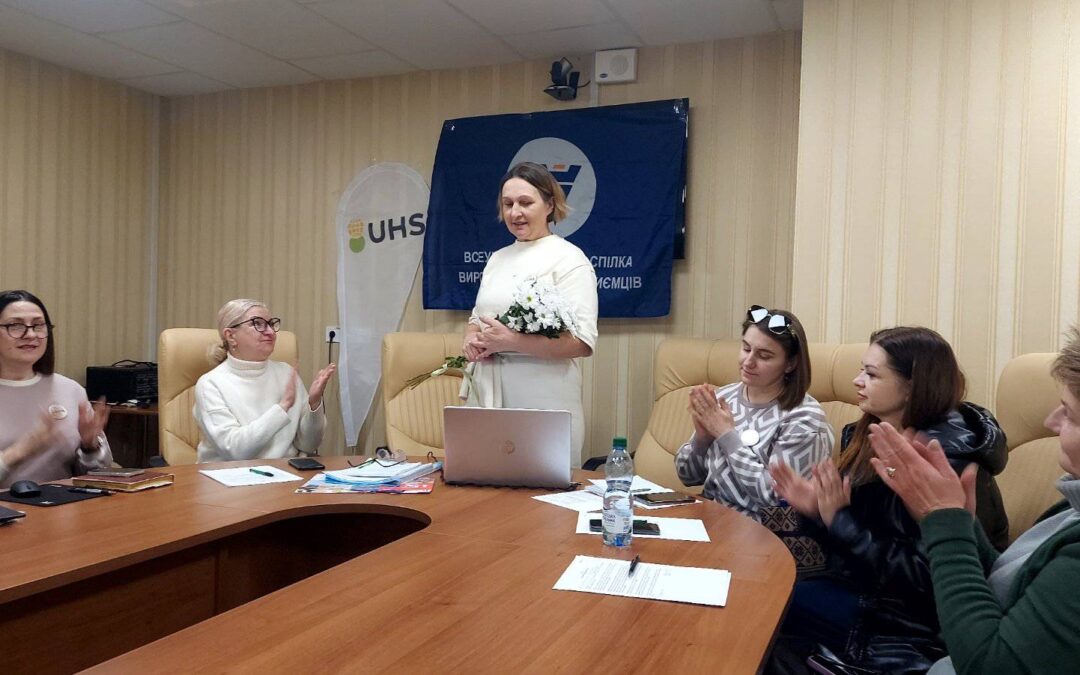
Jul 26, 2024
More than 500 Philippine workers and trade unionists joined a march on July 22nd in Quezon City, demanding that President Ferdinand R. Marcos, Jr. declare support in his State of the Nation Address (SONA) for legislation that would further raise the minimum wage.
The Regional Tripartite Wages and Productivity Board approved a 35 PHP (approximately 0.60 US dollar) daily minimum wage hike for workers in the capital region earlier this month. This falls far short of the 150 PHP (about 3 US dollars) wage hike the National Wage Coalition has persistently called for to support workers’ economic recovery amid high inflation, poor job quality and a lack of new and decent jobs.
The Coalition, representing local workers across various industries and sectors, has remained steadfast in demanding livable wages and are advocating for multiple bills that have been introduced but still await action from the government.
The president has yet to engage in dialogue with Philippine Labor representatives and did not mention wages in his SONA.
Coalition member, Center of United and Progressive Workers (SENTRO), noted in an online statement, “[t]he [national government’s] absence of genuine effort to attain long-term solutions against rising costs and the provision of measly increases that leave workers running in place against inflation…” SENTRO added, “We deserve higher wages not simply because of our labor, but because we are human beings who have every right to live peacefully and decently.”

Jun 24, 2024
Marking the one-year anniversary of the murder of Bangladesh union leader Shahidul Islam, the Solidarity Center is demanding that the police investigation of his case be reopened to ensure that the main perpetrators of the crime are held accountable and that the persistent harassment and unfair labor practices committed against worker leaders in the country end.
A dedicated trade union organizer and leader of the Bangladesh Garment and Industrial Workers Federation (BGIWF), Shahidul was brutally attacked outside Prince Jacquard Sweaters Ltd. factory on June 25, 2023, in retaliation for his efforts to help workers claim their hard-earned, long overdue wages and benefits. He succumbed to his injuries in a local hospital.
Just 45 years old at the time of his death, Shahidul is survived by his wife, also a former union organizer, and two school-age children. He was the sole wage earner for his family. With bills, school fees and her cancer treatments to pay for, Shahidul’s wife is struggling to get by.
While police in February submitted a charge sheet to the Gazipur court accusing 14 individuals in the murder of Shahidul Islam, including one administrative management official from Prince Jacquard Sweaters Ltd., trial dates remain to be set and the investigation is ongoing. Though it is positive to see that police have established a clear link between factory management and the crime, labor rights groups and Shahidul’s family argue that the investigation did not go far enough and that higher-level company officials were likely involved.
“Shahidul Islam knew that without organizing rights, workers cannot collectively bargain for better wages and working conditions in far-flung supply chains,” said Solidarity Center Executive Director Shawna Bader-Blau. “Today as we honor the legacy and memory of Shahidul, we stand united with trade unions and labor rights advocates everywhere in demanding justice for him and protection for the many committed organizers, workers and trade union leaders like him working to shift power dynamics and build worker power in the Bangladesh garment sector—the changes that he died fighting for.”
She added, “There is no alternative to strengthening protections for trade unionists so that they can exercise their fundamental rights without fear of retaliation or violence. And despite the many obstacles, we hope that change is coming.”
The Way Forward
Because of brave organizers like Shahidul Islam, the Solidarity Center has documented the formation of at least 134 independent garment sector trade unions since 2015.
In light of the culture of impunity for worker rights violations that led to his untimely death, the Solidarity Center calls for accountability, justice and transformation. We also call on:
- Brands sourcing from Prince Jacquard Sweaters Ltd. factory to take responsibility for their contribution to the conditions that led to Shahidul Islam’s murder by providing financial compensation to Shahidul’s family. All brands, regardless of whether they were directly or indirectly sourcing from Prince Jacquard, should recognize that their own supply chains are vulnerable to such a horrific event and should take concrete steps to monitor for and take swift action to address wage theft and any violations of freedom of association that occur.
- The government of Bangladesh to ensure that workers’ right to freedom of association is upheld, as the free exercise of this right can safeguard workers and organizers from the kind of violence that killed Shahidul Islam. Concerted action in this area will demonstrate the government’s commitment to upholding fundamental labor rights.

Jun 24, 2024
Over a 25-year career, Shahidul successfully mobilized thousands of workers to join trade unions and empowered them to represent their co-workers as factory-level leaders. As a young man he experienced the grueling reality of work in a garment factory. Overworked and underpaid, and despite the risk of management reprisal, Shahidul decided to take action to build a better future for himself and workers like him by joining the Bangladesh Independent Garment Workers Union Federation (BIGUF) in the late 1990s.
Shahidul learned the ropes of union organizing as a participant in the Solidarity Center’s three-year organizing internship program, enhancing his skills to build worker power. Subsequently, he joined the Bangladesh Garment and Industrial Workers Federation (BGIWF), rising to the rank of president of the Gazipur District Committee. His influence extended to Gazipur, Rampura in Dhaka, and Narayangonj District, where he facilitated the formation of numerous factory-based trade unions, empowering workers to raise their voices for better wages and working conditions. As a trained paralegal of the Solidarity Center, he championed workers in claiming wages and benefits wrongfully denied by their employers. His remarkable ability to motivate and mobilize workers, collaborate with diverse stakeholders and navigate government processes significantly impacted the Bangladesh labor movement.
How did it come to this? Lack of accountability, fear and repression
Shahidul Islam was killed outside Prince Jacquard Sweaters Ltd., a factory producing for buyers in Europe and North America, and a member of the Bangladesh Garment Manufacturers and Exporters Association (BGMEA). Prince Jacquard did not yet have a trade union, though Shahidul’s federation, BGIWF, had started supporting workers to organize not long before his death.
The global garment supply chain is notorious for its exploitation, sourcing from low-wage, minimally regulated countries where factories are rife with wage theft, union busting, forced overtime and other abuses. Multinational fashion brands outsourcing work overseas exercise economic power over suppliers—often under threat of yanking orders and moving production to more compliant factories—and make demands that lead to worker abuse but boost the brand’s bottom line. At the same time, these companies claim a hands-off relationship with suppliers in regard to workplace safety and basic worker and human rights, often hiding behind the façade of “corporate social responsibility” programs and audits. Indeed, Prince Jacquard Sweaters Ltd. had undergone outside audits by two different firms, Amfori and Sedex.
Organizing an independent, democratic union that can represent the rights of workers and help them negotiate with their employers over issues like wage and benefit payments, can be a dangerous endeavor in Bangladesh. Once organized, the trade union registration process in Bangladesh is complicated, time consuming and plagued by corruption and interference from employers and their powerful associations. Workers regularly face unfair labor practices, such as illegal terminations, threats, harassment and violence. As in the case of Shahidul Islam, it is not uncommon for employers to hire local musclemen or mercenary members of management-dominated “yellow” unions to attack workers and organizers to prevent them from exercising their right to freedom of association.
In fact, in the absence of due process for resolving collective disputes between workers and employers, efforts by workers to collectively stand up for their rights are often ignored or met with retaliation. Mere months after Shahidul’s murder, four more workers lost their lives and many more were severely injured during the 2023 workers’ protests for a fair wage. This calls into question the reports about progress on freedom of association in Bangladesh.
Meanwhile, the majority of global brands and buyers sourcing from Prince Jacquard Sweaters have remained unresponsive to repeated outreach by labor rights organizations calling on them to provide compensation to the family of Shahidul Islam, while those who did respond deny responsibility.

May 31, 2024
Gender-based violence and Harassment (GBVH) is a pervasive issue in Nigeria, affecting individuals across various sectors and walks of life. It encompasses a range of harmful behaviors directed at individuals based on their gender, including physical violence, sexual harassment, psychological abuse, and economic exploitation. Legal frameworks and policies aimed at addressing GBVH remain weak, and cultural beliefs still reinforce the culture of silence and stigma.
Efforts to combat GBVH in Nigeria have gained momentum in recent years, with increased advocacy, awareness campaigns, and support services for survivors. Initiatives like “Mista Silas: A Tale of Unheard Voices” play a crucial role in this fight by using art to amplify the voices of those affected and raise awareness of the issue and its impacts.

Scenes from the play “Mista Silas: A Tale of Unheard Voices ” from the performance. Credit: Maigemu Studios/Solidarity Center
“Mista Silas” is a compelling stage play that explores the profound and often overlooked impact of GBVH in the workplace. It shines a spotlight on the prevalence and effects of discrimination and GBVH, brings to life the stories of those who have faced such challenges and gives voice to their struggles and resilience.

The event commenced with a panel discussion with union leaders from Nigeria’s two labor centers, the Nigeria Labor Congress (NLC) and the Trade Union Congress (TUC), with Solidarity Center Country Coordinator Chris Adebayo. The panel session titled, “The Impact of Gender-Based Violence and Harassment in the Workplace” provided a platform for deeper exploration of the theme presented in the play.

“We have a lot of laws in place in Nigeria, but implementation is close to zero,” said NTUC Women’s Commission President Hafsat Shuaib. “But right now, we have [ILO Convention]190, which is really at the forefront for everybody. Together, we can put it into action. Eliminating gender-based violence and harassment is everybody’s business, and so we must all come together and fight against it. All hands must be on deck.”

From left: Chris Adebayo, Country Coordinator, Solidarity Center; Comrade Hafsat Shaibu, NTUC Women’s Commission President.
“Gender-based violence and harassment is criminal. It is a crime against the individual, it is a crime against humanity, and it is a crime against God. We are valued as human beings, as individuals. We work to earn a living, and earning a living does not include [access to] our bodies,” said Rita Goyit, head of the Women and Youth Empowerment Department for the NLC.

Left to right: Comrade Rita Goyit, head of the Women and Youth Empowerment Department for the NLC; Ms. Toyin Falaiye, global labor lawyers’ network ILAW.
After the panel session, the play set the stage for a narrative exploring the toxic nature of abuse of power that fuels GBVH in the world of work by introducing Mista Silas, a perpetrator of GBVH, in his office. With an air of entitlement, he disregards women’s autonomy, seeing them merely as objects for male pleasure.

As the story unfolds, it highlights the insidious nature of GBVH and the attitudes that perpetuates it. Mista Silas’s words and actions exact an emotional and psychological toll on his victims, confronting the audience with the harsh realities many women face in the workplace.


The women experience harrowing harassment and retaliation for refusing Mista Silas’s advances, portraying survivors’ trauma and resistance. Their synchronized movements and harmonized voices evoke the solidarity and strength found in shared experiences and illustrate the widespread impact of GBVH and the courage required to stand against it.

By understanding the experiences of those affected by GBVH in the workplace, we can raise awareness and cultivate empathy and a more profound commitment to fostering safe and respectful workplaces.

The play is a call to action. It underscores the importance of implementing effective policies and support systems to protect and empower all workers. Workplaces must collectively strive to create environments where everyone feels valued, respected and safe.

The audience responded to the performance with a standing ovation. Some wiped away tears, while others expressed gratitude and requested additional information from the Solidarity Center. Audible murmurs and gasps of shock and empathy were heard throughout the performance, especially during scenes depicting abusive experiences. The play’s power to elicit such emotional reactions highlights the effectiveness of storytelling and the personalization of the issue of gender-based violence and harassment.

From left: Sophie Hart, MEL, USDOL, and Marie Ledan, Grant Officer’s Representative, USDOL, giving special remarks.
In their closing remarks, Sophie Hart and Marie Ledan, representatives from the U.S. Department of Labor, reiterated the importance of addressing gender-based violence and harassment in the world of work and thanked the Solidarity Center for using the arts and storytelling to raise awareness of the issue.
Watch highlights.

May 24, 2024
Soon after organizing to advocate for formal recognition as workers and protections at work, domestic workers in Ukraine won a significant victory when President Volodymyr Zelenskyy signed a new law on May 22 regulating domestic work and affording new protections to domestic workers.
Significantly, the law recognizes and defines domestic work and domestic workers, and affords them all labor rights and guarantees, including normal working hours, overtime compensation, daily and weekly rest periods, and paid annual leave. It guarantees domestic workers’ right to a safe and healthy work environment and makes employers responsible for ensuring safe working conditions. The law also establishes an employment contract as the primary means of formalizing the working relationship and sets a minimum age for domestic workers.
Last year, the first survey to evaluate the working conditions of Ukraine’s domestic workers found that lacking contracts and formal recognition left most respondents vulnerable to low pay, wage theft, confusion about employment status, exclusion from the country’s pension system and minimal capacity to exercise their right to freedom of association. Most reported working without formal terms and conditions of employment.
“This is an important development for Ukraine’s human rights protection and Euro-integration efforts,” said Tristan Masat, Solidarity Center Ukraine country program director. “Domestic and care workers are among the most isolated and vulnerable groups in the economy, and with so many Ukrainians working in-household jobs in the EU, it’s valuable to see the government take a strong and progressive position on the rights of these workers in Ukraine.”

Tetiana Lauhina, founder of the Union of Home Staff
While the new law allows domestic workers and employers to codify the terms of employment in a contract and protects domestic workers under Ukraine’s labor laws, much work remains to enforce the law and secure better protections for domestic workers.
Tetiana Lauhina, founder of the Union of Home Staff, said the law has been a long time in coming. “We have been waiting for this law since 2015. It’s a strong step in the right direction. Next, we’d like to see the International Labor Organization’s Convention 189 on domestic workers ratified by Ukraine. Its ratification and implementation is a major goal for the Union of Home Staff.”


















